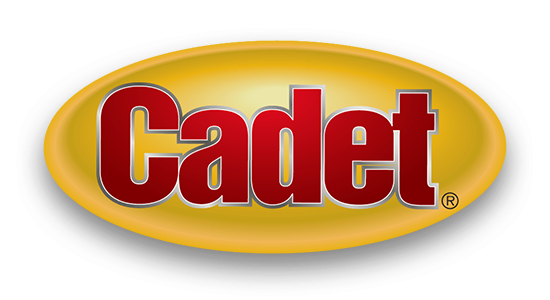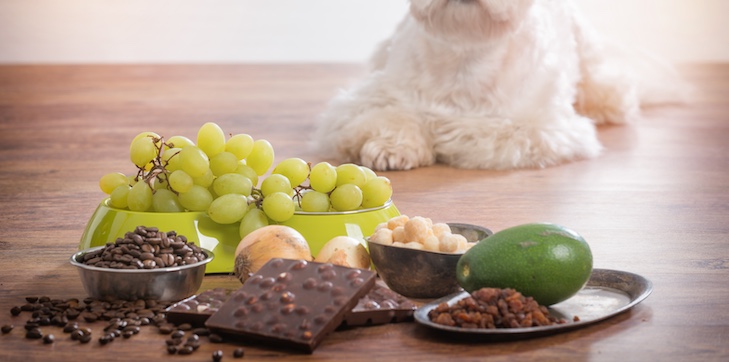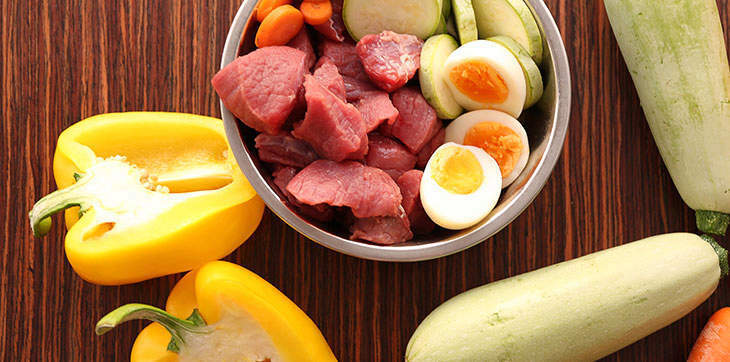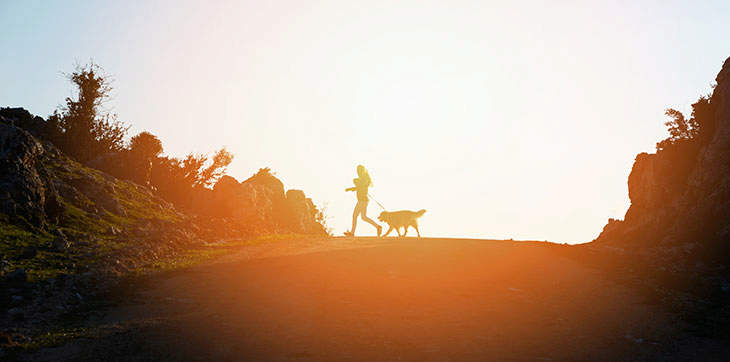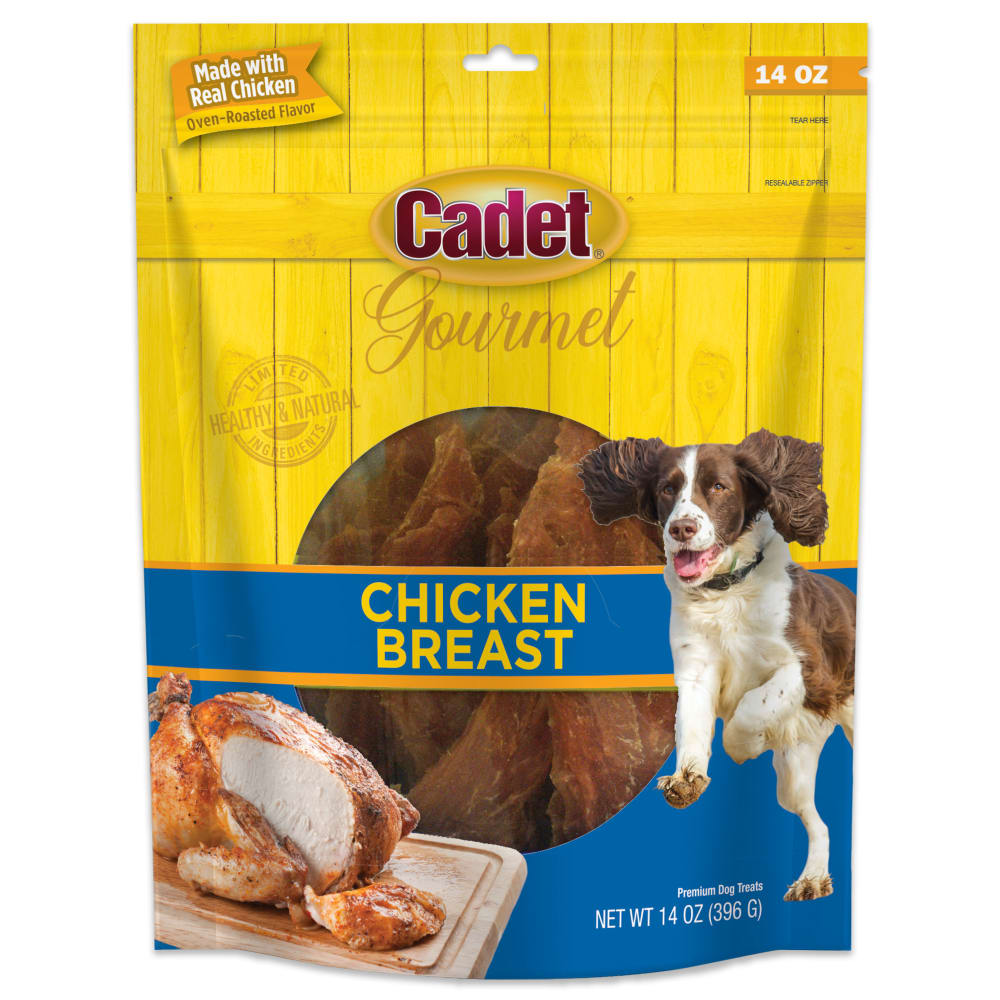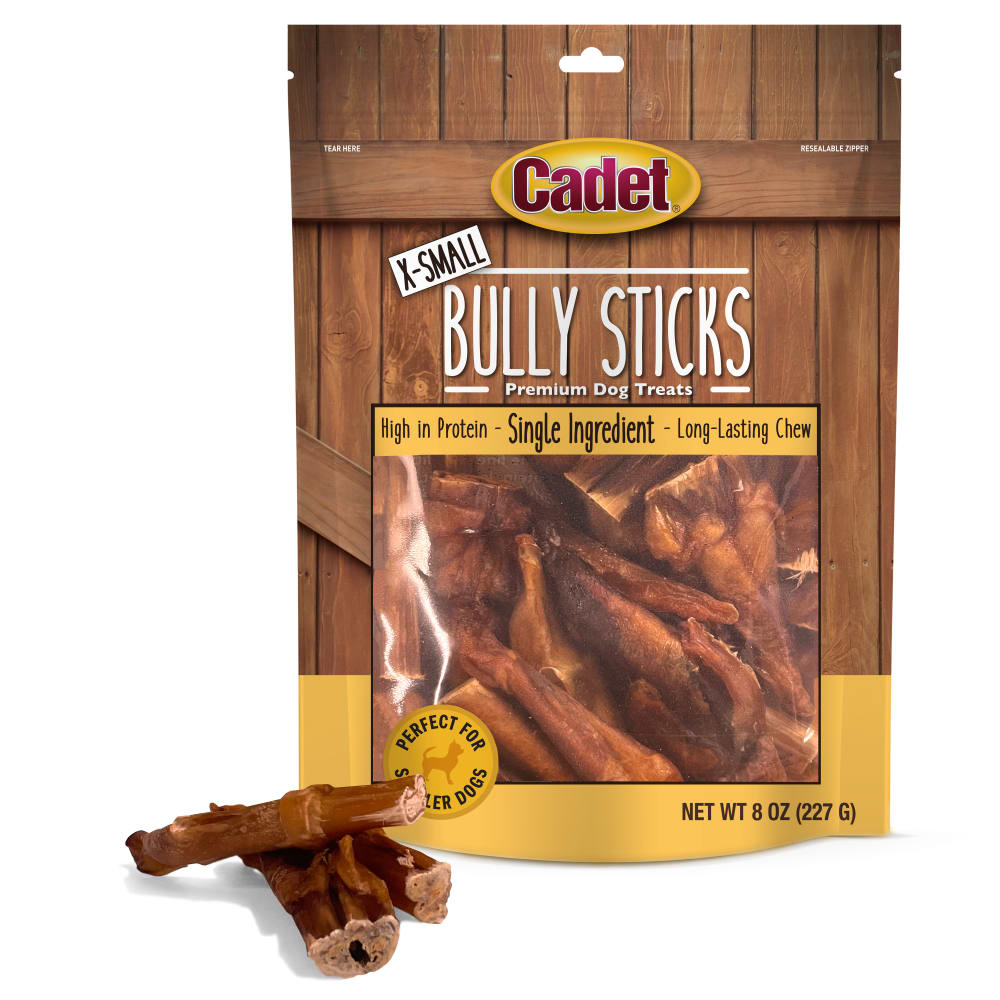Toxic Foods for Dogs
Dogs generally do best with food made specifically for canines. Sometimes, though, if a dog is ill, or is being tested for allergies, or if the food is a special treat, human food for dogs is appropriate. We all love to share with our dogs, but there are some toxic foods for dogs that are off limits.
ALCOHOL
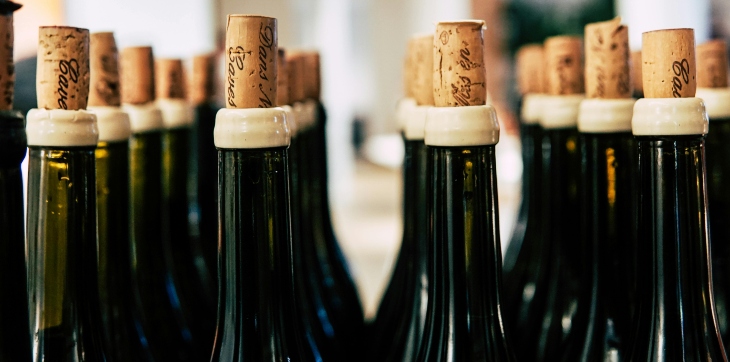
Dogs can’t have alcohol. It doesn’t take much of an alcoholic beverage to cause alcohol poisoning. Getting a dog drunk isn’t funny, and it could be fatal.
CAFFEINE
Dogs can’t have caffeine. Caffeine affects dogs more intensely than it does humans, and too much can be fatal. Save the coffee for your morning wake-up call and stick to plain water for your dog. If you have diet pills in your home, put them in a place your dog can’t get to. These pills typically contain caffeine and can be potentially deadly if ingested.
CHOCOLATE
No list of foods that are toxic to dogs would be complete without chocolate. This sweet treat contains both theobromine and caffeine, both of which can be toxic, or even fatal, to a dog. One simple rule of thumb when it comes to dogs and chocolate: the darker the chocolate, the greater the danger. White chocolate, for example, has almost no theobromine, so while it’s not necessarily safe for dogs to eat, it is less toxic than milk chocolate or baking chocolate. Purdue University says that just a single ounce of baking chocolate could produce severe toxicity in a ten-pound dog, while it would take two or three average-sized milk chocolate bars to produce toxicity in a dog of the same size. Don’t rely on measurements, though—keep your dog safe by saving the chocolate treats for yourself.
RELATED: Can Dogs Eat Chicken Bones?
COOKED BONES
Dogs can’t eat cooked bones—such as leftover bones from the dinner table—as they can easily splinter and potentially harm their mouth or intestines. However, dogs can eat many types of beef bones as long as they are large enough to chew safely, clean, and either raw or commercially slow roasted for dogs. You can also offer your dog a raw beef bone from the butcher or grocery store, but it must be stored properly to prevent bacteria from growing. Just make sure you supervise your furry friend as they chew and take their bone away if they bite off pieces too large to swallow. Never give them a chicken bone, as these are generally smaller and more brittle than beef bones.
GRAPES AND RAISINS
These are both among the most poisonous foods for dogs. Grapes, and therefore raisins, can cause kidney failure in your canine friend. The effects of grapes on dogs are not definite, and there is no set amount determined as harmful. Some dogs may have no ill effects from ingesting grapes, while others may suffer irreversible damage. Play it safe and never give your dog grapes or raisins.
MACADAMIA NUTS
Although dogs can eat some types of nuts, they can’t eat macadamia nuts. These tasty Hawaiian treats are among the most toxic foods for dogs. When consumed, macadamia nuts can cause paralysis of the hind legs anywhere from 12 to 24 hours after a dog has eaten them. While the paralysis does wear off after a couple of days, it’s an unpleasant and frightening experience for both you and your dog. Also, because of the extended time the dog is paralyzed, it is possible for the condition to be misdiagnosed and the dog to be euthanized. The bottom line: Don’t go nuts with macadamia nuts. Keep them for your cocktail hour (far away from your dog), and offer your pup a dog treat instead.
ONIONS AND GARLIC
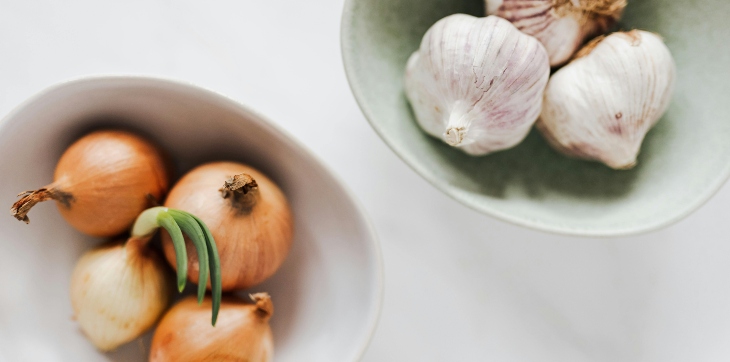
Dogs can’t eat onions or garlic. Bad breath aside, there are a few reasons you should ban onion and garlic from your dog’s diet. Both foods can damage red blood cells and cause hemolytic anemia—bad news for dogs (and their pet parents). Keep these foods that are bad for dogs away from your furry friend and avoid feeding any leftovers or table scraps that include these flavorful ingredients.
RAW EGG WHITES
Dogs can’t eat raw egg. A bit of cooked egg now and then can make a tasty treat, but raw egg whites contain avidin, a protein that binds up with the B vitamin biotin. When avidin and biotin bind, your dog can’t use the biotin. Also, as with any raw food, there’s the risk of salmonella, which can cause fever, vomiting, and diarrhea.
XYLITOL
Dogs can’t have the artificial sweetener xylitol. Xylitol is an artificial sweetener used in many sugar-free products like gum and candy that, in dogs, can cause hypoglycemia, with symptoms of depression, loss of coordination, and seizures. Xylitol can also lead to liver failure. If you cook with xylitol, keep it away from your dog. Also, check the ingredients of any sugar-free products in your kitchen for xylitol, and keep them away from them.
YEAST DOUGH

Of all the foods poisonous to dogs, yeast dough is one of the lesser-known dangers. If a dog eats yeast dough, it can continue to rise in their stomach. Besides causing pain, rising dough could cause a condition called bloat, where the dog’s stomach twists, sealing off both ends. If untreated, bloat can be fatal. Also, the rising dough produces ethanol, a form of alcohol, which can lead to fatal alcohol poisoning.
ADDITIONAL FOODS TO AVOID
Speaking of what dogs can’t eat, don’t give your furry friend anything that could block their intestines if swallowed—like corncobs or avocado pits. Both can cause an obstruction of the bowels, which may require a costly and painful surgery to remove. Pay attention to the size of any bones or treats you give your dog, too. Chewing a bone can be good; swallowing one whole is not. Always supervise your dog when they’re chewing a bone, a natural chew, or even a chew toy.
While not specifically life threatening, spicy, rich, and greasy foods may cause vomiting or diarrhea. Of course, neither of those is pleasant, for you or your dog.
If you know your furry friend has ingested any of these foods that are bad for dogs, contact your veterinarian right away. If possible, tell your vet how much of the food your dog ate.
If your dog is vomiting, seems lethargic, has diarrhea, or has a painful, distended stomach, call your veterinarian immediately. If you suspect a food may be the source of the problem, tell your vet what food and how much you think your dog ate. Prompt treatment can stop or reverse the effects of many of these toxic foods for dogs.
Now that you know what dogs can’t eat, it’s a good idea to learn about some common dangers found in nature. Keep your furry friend away from these plants that are toxic to dogs.
